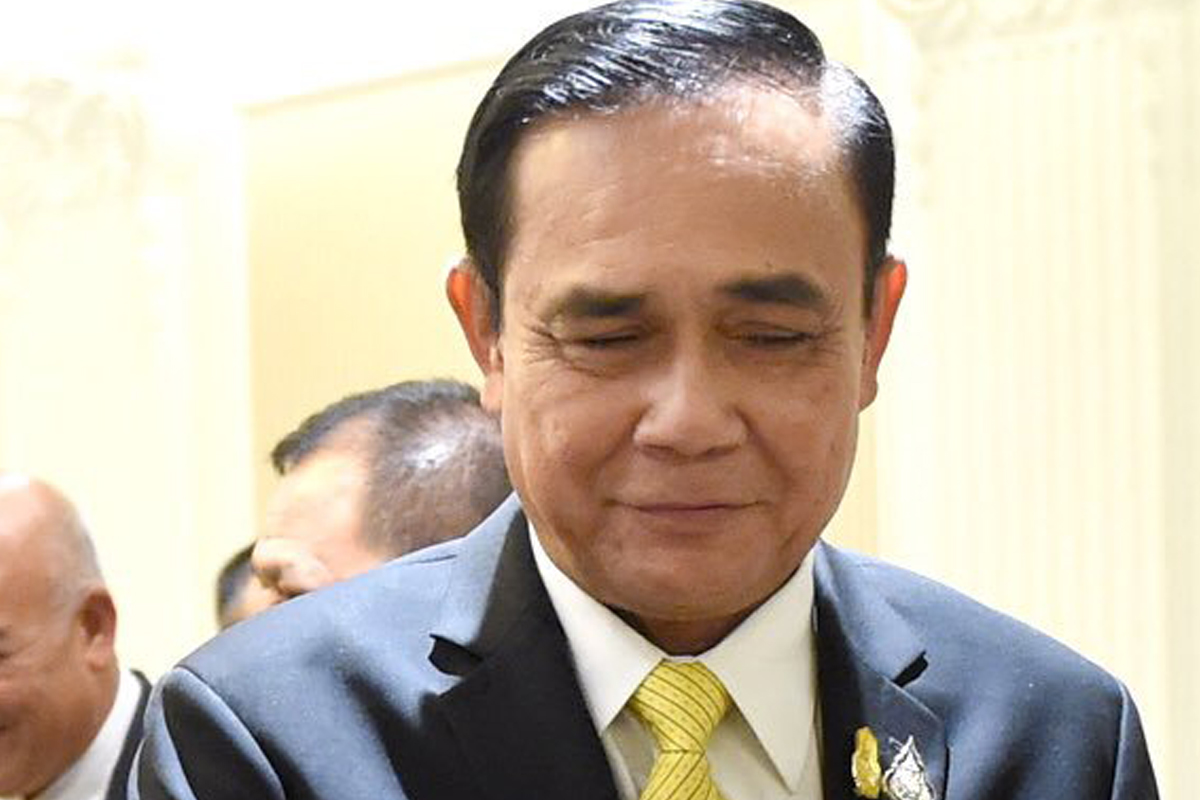Shehbaz Returns
Shehbaz Sharif has been elected as Pakistan’s Prime Minister for the second time, marking a return to a position he held until August when Parliament was dissolved ahead of the elections.
It redounds to Prayuth’s credit that the faint stirrings of democracy were evident last week when he ended various restrictions on the media

(Photo: Twitter/@prayutofficial)
Thailand’s Prime Minister and former army chief, Prayuth Chan-ocha, has drawn a fine distinction between civilian and military rule with his resignation as head of the military government on Monday.
Given the country’s record of instability over the past few years, people in general are unlikely to be convinced, least of all the Shinawatra family, despite the seemingly saccharine assurance that the country will boast a “normal democracy” after five years of military rule.
That pledge cannot readily inspire optimism not the least because he will be heading a purportedly civilian government with the backing of pro-military parties in Parliament.
Advertisement
Furthermore, the military will be the dominant force in the Upper House under a Constitution which, in the reckoning of its critics, stifles democracy and accords a political role for the uniform. The influence of the cantonment is thus institutionalised and Prayuth has not effected a paradigm shift per se. Far from it.
The Prime Minister might shed his uniform, but the role of the army will be more pronounced than in Myanmar to the north of Thailand. There is little doubt that he will be the army’s man in the Prime Minister’s office, albeit in civilian garb after quitting as junta chief.
The deception is complete. Small wonder that his resignation from the military was clothed in bouquets for the armed forces, notably its success in addressing the problem of fishing and human trafficking and the rescue of 12 boys and their soccer coach who were trapped in a flooded cave last year. It bears recall that as army chief, Prayuth had seized power in a coup in 2014.
That intervention, as he claimed on Monday, was imperative to restore order after six months of street riots and violent clashes. “But things are getting back to normal after the election on 24 March.” The recent narrative in Thailand scarcely guarantees a democracy in the truest sense of the term. And this is the strand that binds the country with Aung San Suu Kyi’s Myanmar. Theoretically, Prayuth may be right, but much will hinge on the praxis of governance. “Thailand,” he claimed in his resignation speech, “is now fully a democratic country with a constitutional monarchy with a Parliament whose members are elected.” By that token, the legislative construct may be similar to that of Bhutan, which boasts a constitutional monarchy post the election in 2007. Not that his speech glossed over the sweeping powers that the military has wielded for the past five years. Hence perhaps the assurance that henceforth “all problems will be addressed normally based on a democratic system with no use of special powers.”
It redounds to Prayuth’s credit that the faint stirrings of democracy were evident last week when he ended various restrictions on the media. He has also transferred civilian cases from the military to civilian courts.
Advertisement